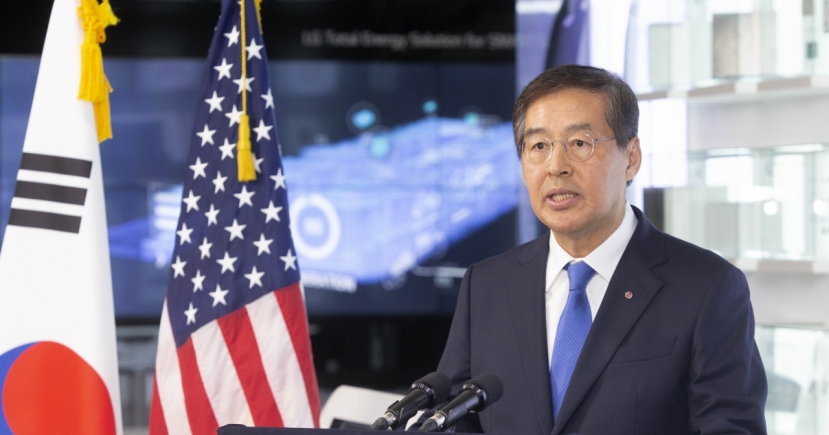Blockchains are resistant to censorship, fraud: Ethereum founder
[THE INVESTOR] Vitalik Buterin, the founder of Ethereum, pointed out inefficiencies in blockchain technology, but emphasized resistance from censorship and fraud as key benefits at the Deconomy blockchain conference in Seoul on April 4.
“Blockchains, by themselves, are far less efficient than the technologies that have existed over the past 40 years,” Buterin said, adding that the Ethereum network is about one million times less efficient than Amazon’s cloud computing platform EC2 when it comes to speed and costs.
The 24-year-old creator, however, also said the upsides or goal of blockchain outweigh these inefficiencies. Censorship resistance from a third party -- such as the government, banks and payment processors interfering in such transactions -- is one of the main benefits. Fraud prevention, transparency, interoperability and robustness are other important goals as well.
 |
Vitalik Buterin, the founder of Ethereum, at Deconomy |
“If we want blockchain to reach a wider scale of usage, affect things like improving life of refugees, giving identity to the poor, connecting together, providing new kinds of economic interactions and just regular payment activities like buying coffee ... I would claim that it needs to be cheaper,” he said. “This is the reason why scalability is super important.”
“My main area of concern and interest is figuring out ways to scale, while at the same time preserving ways to decentralize, and security,” he said.
Buterin noted that developers are working hard to improve the world’s second-largest blockchain’s scalability and speed through various technologies. They include sharing, which splits the blockchain’s data into several different parts to manage, and plasma, a system of smart contracts which can raise the computational potential of Ethereum blockchain, among others.
But what’s most important is to choose the right mix of technologies, because each technology has trade-offs, meaning “you can’t have it all.”
“If you want to design blockchain application for your particular use case, the first thing you want to do is really figure out which of the properties you want,” he said. “Do you care about latency or privacy? There is a large set of designs we could choose from. In one position, you can get rid of the latency problem and have much higher efficiency. (While) there are mechanisms that preserve privacy but have other costs.”
By Ahn Sung-mi (sahn@heraldcorp.com)






![[KH Explains] Korean shipbuilding stocks rally: Real growth or bubble?](http://res.heraldm.com/phpwas/restmb_idxmake.php?idx=151&simg=/content/image/2024/04/25/20240425050656_0.jpg)
![[Hello India] Hyundai Motor vows to boost 'clean mobility' in India](http://res.heraldm.com/phpwas/restmb_idxmake.php?idx=151&simg=/content/image/2024/04/25/20240425050672_0.jpg)
